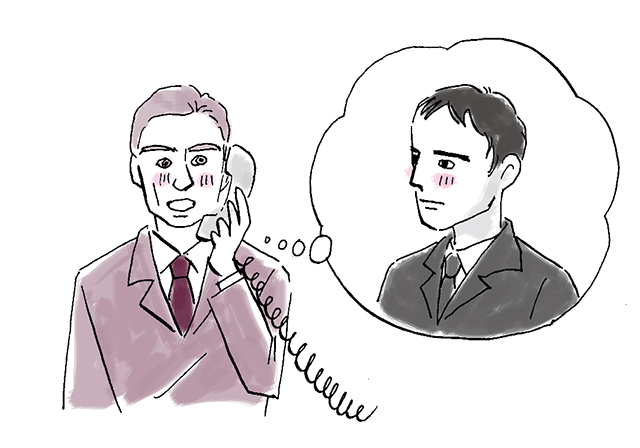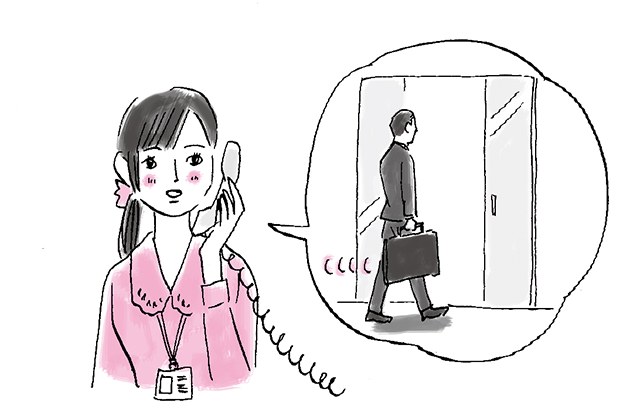Phone Etiquette for Business

Used for business calls, for example, making a phone call to a client, Japanese generally speak as follows:
“Watashi wa ABC sha no Satou to moushimasu. Osewani natte orimasu. Tanaka san wa irasshaimasu ka.”
*This means: “This is Sato of ABC company. Is Mr. Tanaka there?”
When you say your name, it is better to say “moushimasu,” rather than “iimasu,” since it makes a polite impression on the person you’re speaking to. “Osewa ni natte orimasu” (I would appreciate your usual cooperation) is a set phrase that demonstrates respect for a client.
If you say “imasu ka” instead of “irasshaimasu ka” to a client, you will be perceived as being a person ignorant of polite manners. The other way to say this would be “Tanaka san o, onegai shimasu.” (Mr. Tanaka please.)
When replying to such phone calls, you should say the following:
“Tanaka desune. Shoushou omachikudasai.”
*It means “Mr. Tanaka? Hold the line please.”
When dealing with staff within your company, even if they are your boss or president, you should not address them using san or their position title.

In cases when the person is out of the office, you should say the following:
“Tanaka wa gaishutsuchuu desu. Yoroshikereba goyouken o oukagai itashimasu.”
*It means “Tanaka is out, may I take a message for him?”
“Yoroshikereba” is a phrase that is often used.
If the caller says to call him back later, you should say the following:
“Yoroshikereba, orikaeshi Tanaka kara denwa sashiagemashouka.”
*It means “Shall I get Tanaka to call you back?
Even so, if the caller says, “Iie, kochira kara nochi hodo kakenaoshi masu. (“It’s OK. I will call him back later.”), you can infer that the caller would like to put something directly to Mr. Tanaka. It is generally accepted that when you want to sell something or make a request to a person, you should call back.
